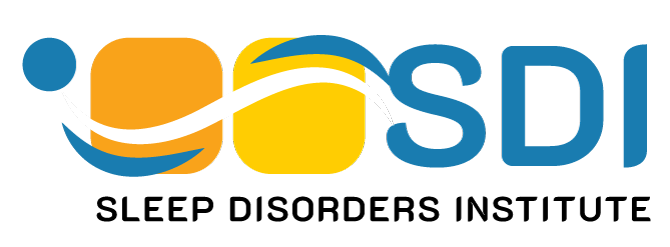Sleep Services
SDI offers the following types of visits and laboratory procedures:




Office Visits and Procedures
Initial Consultation:
A full 30-45 minute office visit with a sleep specialist, which includes sleep, medical, and psychiatric histories. This visit also may include a physical examination and lab testing (e.g., bloodwork, urinalysis, drug screen, EKG)
Follow-Up Visit:
A brief 30 minute office visit with a sleep specialist, usually done to review test results, initiate treatment, or monitor and modify treatment as needed.
Nocturnal Polysomnography (Diagnostic):
Overnight sleep testing performed in accordance with current standards of practice.
Nocturnal Polysomnography with Continuous Positive Airway Pressure (CPAP):
Overnight sleep testing performed in accordance with current standards of practice, with CPAP added and adjusted to therapeutic pressures.
Home Sleep Test (Diagnostic):
Home sleep testing performed in accordance with current standards of practice. This test enables patients to obtain vital sleep diagnostic information in the comfort of their own home using an easy-to-use, portable medical device.
Split-Night Polysomnography:
Overnight testing that is split between a diagnostic period, usually at the beginning of the recording, and a CPAP period.
PAP NAP:
The PAP NAP is a short CPAP titration procedure that is performed in the laboratory during a brief daytime visit. The patient is given the opportunity to nap while wearing a CPAP so that an expert technician can determine the optimal CPAP pressure. The PAP NAP does not replace overnight polysomnography with CPAP titration, but is a useful tool that enables doctors to optimize CPAP pressure.
Nocturnal Seizure Recording:
Multi-channel EEG recording performed in order to evaluate sleep-related seizures.
Mutliple Sleep Latency Test (MSLT):
A test that involves a series of daytime nap opportunities, usually at 9:30 AM, 11:30 AM, 1:30 PM, 3:30 PM, and 5:30 PM, when needed, in order to evaluate daytime sleepiness. The MSLT is desirable for all cases of daytime sleepiness, and is required for the evaluation of narcolepsy.
Maintenance of Wakefulness Test (MWT):
A daytime challenge test in which the patient is given multiple opportunities to nap, but instructed to remain awake during the recording period. The MWT often provides valuable information relevant to the patient’s ability to sustain wakefulness in occupational settings or when performing critical tasks (e.g., driving).
Holter Monitor:
Multi-lead cardiographic (ECG) recording, which can be performed in association with polysomnography when cardiac function during sleep is a concern.
